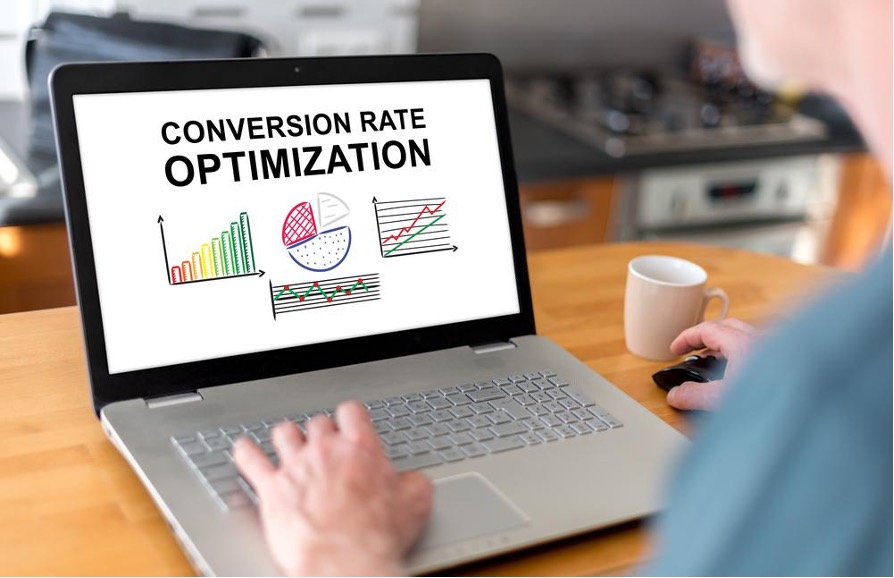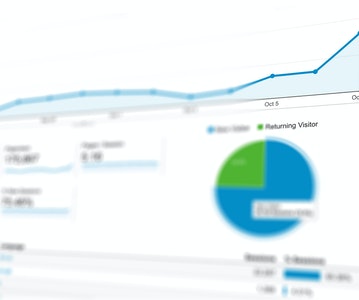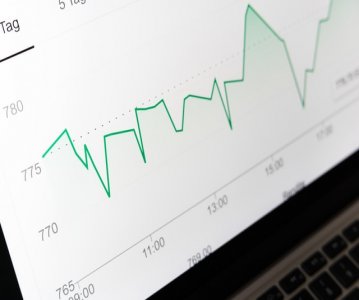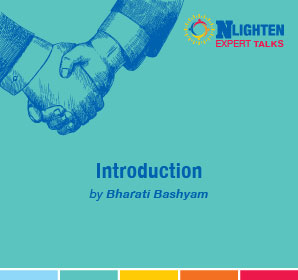This article is about Digital Marketing
SEO Made Effortless With 5 Automation Tools
By NIIT Editorial
Published on 04/06/2023
Search engine optimisation, or SEO, is the process of tweaking a website and its content to improve its position in SERPs. By making your site more appealing to search engines like Google, Bing, and Yahoo, you may increase the amount of free, organic traffic that you get.
You may save time and effort by automating and streamlining your SEO efforts with the aid of automation technologies. Keyword research, link building, content optimisation, and reporting are just some of the time- and labour-saving operations that may be automated with the aid of the right tools.
Table of Contents:
● Keyword Research
● On-page Optimization
● Backlink Analysis
● Rank Tracking
● Content Optimization
● Conclusion
Keyword Research
When people use a search engine to find content, they often type in a set of keywords that describe what they're searching for. You may learn more about the popularity of the keywords, the level of competition, and the goals of potential users. The chances of your web pages showing up in search engine results improve when you include relevant keywords in your content.
Benefits of Using Automation Tools for Keyword Research
- Time-Saving:
Automation solutions simplify the time-consuming task of doing keyword research by doing the legwork for you. SEO experts and writers may save a lot of time with the help of these programmes since they give extensive keyword ideas, search traffic statistics, and competition analysis.
- Data Accuracy:
Keyword data obtained using automation systems is reliable since it is based on complex algorithms and extensive databases. This guarantees that your optimisation tactics are well-informed and well-informed selections.
- Comprehensive Keyword Suggestions:
Based on the first seed keyword or subject, automation algorithms create a long list of related keyword ideas. The chances for optimising your content for long-tail keywords and their variants are widened by the advice provided.
- Competitor Analysis:
Competitor analysis is a common function of automation systems, letting you spy on the terms your rivals are using to drive traffic to their sites. With this knowledge, you may analyse the market and make strategic adjustments to take advantage of fresh openings or fill in any holes you find.
Another well-liked all-in-one SEO tool with powerful keyword research features is SEMrush. You can research search volume, competitiveness, and keyword trends for thousands of keywords using its Keyword Magic Tool. Features like competition research, site audits, and rank monitoring are also available via SEMrush.
- Google Keyword Planner:
Google Ads' free keyword research tool is called Google Keyword Planner. Although it was created with advertising in mind, it may be used for useful SEO keyword analysis as well. Insights into keyword trends, statistics on search volumes, and suggested keywords are all provided. Google's Keyword Planner is a good place to begin your keyword research, albeit it is not as thorough as more specialised SEO tools.
On-Page Optimization
To increase a website's exposure and relevance in search engine results, on-page optimization is used. Among the factors that must be optimised are the page's meta tags, headers, URL structure, keyword placement, content quality, internal linking, and multimedia components. On-page optimization works to improve a page's ranking potential by making it more crawlable by search engines.
Benefits of Using Automation Tools for On-Page Optimization
- Efficiency and Time-Saving:
On-page optimisation is simplified with the use of automation technologies, which also cut down on time spent optimising manually. To free up time for strategy and execution, rather than mundane manual duties, SEO practitioners may use these tools to analyse web pages, discover optimisation possibilities, and make actionable suggestions.
- Comprehensive Analysis:
Meta tags, headers, and keyword use are just few of the on-page factors that may be thoroughly analysed with the help of automation technologies. Potential problems, such as keyword density, duplicate content, broken links, and more may be revealed by using these tools. You may be certain that your web pages are up to par with SEO standards thanks to this thorough evaluation.
- On-Page Recommendations:
On-page suggestions are generated automatically by automation technologies, following established standards and search engine recommendations. Meta tags, text readability, good heading structure, and effective keyword placement are just few of the areas where improvement is suggested. Adhering to these tips can help your web pages rank higher in search engine results and attract more visitors.
- Technical SEO Audits:
In order to resolve technical problems that might hinder on-page optimisation, several automation systems have technical SEO audit features. Problems with broken links, website load speeds, mobile friendliness, and URL structure are all examples. Fixing these technological issues improves both user experience and crawlability for search engines.
- Multilingual and Multisite Support:
You may manage on-page optimisation across numerous websites or domains, as well as optimise web pages for several languages, with the use of automated tools. This is helpful for any organisation, but notably those venturing into overseas markets or handling massive SEO initiatives.
Top SEO Automation Tools for On-Page Optimization
- Yoast SEO:
The Yoast SEO plugin for WordPress is widely used because of the many on-page optimisation options it offers. Meta tags, headers, keyword use, readability, and internal linking may all be improved with the assistance of the tool's real-time analysis. Yoast SEO also includes other features like XML sitemap development and social media integration.
- SEMrush:
SEMrush is a comprehensive SEO tool with many useful functions for optimising individual web pages. You may examine keyword use, content quality, and technical concerns using its On-Page SEO Checker. In addition to meta tag and heading optimization suggestions, SEMrush provides content templates and audits.
- Screaming Frog:
When it comes to on-page SEO aspects, Screaming Frog is an effective website crawler. Meta tags, headers, URL structure, internal links, and more are all thoroughly examined. With the assistance of Screaming Frog, you can easily optimize your web pages by fixing problems like broken links, duplicate content, and missing meta tags.
Backlink Analysis
Analysing the external links that lead to a website is called backlink analysis. To learn how these backlinks affect search engine rankings, it is necessary to analyse their amount, quality, and relevancy. In order to acquire high-quality backlinks, comprehend the competitive environment, and enhance a website's overall link profile, SEO specialists often do backlink research.
Benefits of Using Automation Tools for Backlink Analysis
- Comprehensive Data:
In order to compare your website's link profile to that of your rivals, you may use the data provided by automation tools. Backlinks, referring domains, anchor text distribution, link quality, and link growth over time are just few of the metrics that can be analysed with the use of these tools.
With complete information at your fingertips, you can make smarter judgements and develop more efficient link-building tactics.
- Competitive Analysis:
Competitive analysis is aided by automation systems that reveal the backlink profiles of rival businesses. You may find out which of their pages are the most popular, learn where their links come from, and evaluate the connections' quality and relevancy. You may get a leg up on the competition and find new link-building chances with the aid of this data.
- Link Quality Evaluation:
Backlink quality is measured by several indicators in automated link analysis tools, including domain authority, page authority, trust flow, citation flow, and spam score.
The quality of backlinks may be evaluated to find low-quality connections that might hurt your website's search engine results. This enables you to take corrective measures, such as removing or disavowing harmful connections.
- Link Building Opportunities:
Reports generated by automation systems may help you find relevant link building chances by analysing your website's specialty, rivals, and desired keywords. These analyses will advise you on which related websites or domains you should obtain backlinks from.
Your website's authority and visibility in search engine results may benefit from taking advantage of these link development possibilities.
- Monitoring and Reporting:
You can monitor and report on the progress of your backlink profile over time with the use of automation tools. You may be notified if there are new backlinks, changes to the status of existing backlinks, or lost backlinks.
To analyse the results of your link-building efforts, these tools provide detailed reports complete with charts and numbers.
Top SEO Automation Tools for Backlink Analysis
1. Ahrefs:
When it comes to backlink analysis, no other tool compares to Ahrefs's comprehensiveness and power. It reveals in-depth information on backlink profiles such referring domains, anchor text, and domain authority. Site Explorer, Backlink Checker, and Content Explorer are just a few of the Ahrefs tools available for in-depth examination and finding new link development prospects.
2. Majestic SEO:
The extensive link index database is what makes Majestic SEO such a sought-after backlink analysing tool. It gives in-depth metrics for gauging backlink quality, such as Trust Flow and Citation Flow. Site Explorer, Backlink History Checker, and Link Context are just few of the tools available in Majestic SEO for examining link profiles, examining the competition, and monitoring link growth.
3. SEMrush:
SEMrush is a comprehensive SEO tool with a number of useful functions for analysing backlinks. The data gathered by its Backlink Analytics tool reveals information on backlink profiles such referring domains, authority scores, and anchor text use.
Rank Tracking
Rank tracking is the practice of keeping tabs on where individual pages on your website fall in relation to target keywords inside search engine results pages (SERPs). The rankings need to be monitored and recorded on a regular basis so that the efficacy of SEO techniques can be evaluated and patterns can be identified. Tracking your rankings in search engines may help you improve your website's exposure and performance.
Benefits of Using Automation Tools for Rank Tracking
- Accuracy and Efficiency:
The rank tracking capabilities provided by automation solutions are both precise and time-saving. They provide time- and labour-saving real-time or scheduled monitoring of keyword rankings across many search engines.
The necessity for time-consuming human research is mitigated by automation technologies, which also make a wealth of information easily accessible.
- Comprehensive Keyword Tracking:
With the help of automation software, you can monitor the performance of your website across a wide range of keywords at once. Using these instruments, you may track the positions of certain keywords, their variants, and phrases used in a specific region.
Complete comprehension of your website's search engine presence is only possible with thorough keyword monitoring.
- Competitor Analysis:
You can keep tabs on where your rivals are in terms of search engine rankings for target keywords thanks to the competition analysis capabilities offered by many automation products. By comparing your own performance to theirs and learning from the results, you may pinpoint where you can make enhancements.
You may improve your SEO strategy and maintain an advantage over the competition by doing a thorough investigation of your competitors.
- Historical Data and Trend Analysis:
Using the rank monitoring data provided by automation technologies, you may see patterns and trends over time. Seeing the results of your optimisation efforts and spotting ranking variations is much easier with this data.
You can learn a lot about the success of your SEO techniques and where to make improvements by looking at historical data and analysing trends.
- Customized Reporting:
You may develop comprehensive reports complete with KPIs and visualisations with the help of automation tools thanks to their flexible reporting capabilities. The data in these reports will provide you an accurate picture of where your site stands in terms of popularity and traffic over time.
Data-driven decisions are made easier with individualised reporting, and SEO success is better communicated to stakeholders.
Top SEO Automation Tools for Rank Tracking
- SEMrush:
SEMrush is an all-inclusive SEO tool with superior position monitoring features. You can track the position of a term in many search engines and locales with its help.
Rankings, SERP features, and competition positions are just some of the information provided by SEMrush. The software also has a report builder and a method for analysing trends.
- Ahrefs:
When it comes to analysing backlinks, Ahrefs is unparalleled as an SEO tool. It also has a tool for keeping tabs on your standings called "Rank Tracker."
Search engine results page (SERP) features, keyword positions, and search visibility trends may all be analysed using Rank Tracker. Ahrefs offers current and relevant data, tailored reports, and an examination of the competition.
- Moz Pro:
Moz Pro is an all-inclusive SEO suite that has a full-featured rank monitoring instrument. You can analyse SERP elements, keep tabs on your website's exposure, and see how your keywords are faring across all the major search engines using Moz Pro's Rank Tracker.
The software allows users to analyse trends, keep tabs on the competition, and access previous data. Moz Pro also provides practical advice on how to raise search engine rankings.
Content Optimization
The term "content optimisation" is used to describe the method of enhancing material on a website so that it is more accessible to both humans and search engines. Among the many things that need to be optimised are keywords, meta tags, headers, readability, structure, and multimedia components. Increased organic traffic and higher search engine ranks are the end results of optimising your content for relevance, visibility, and user experience.
Benefits of Using Automation Tools for Content Optimization
- Keyword Optimization:
Automated programmes help with keyword optimisation by making keyword suggestions and checking for overuse of terms in the text. You may use the information about search volume, competitiveness, and similar keywords to better match your content with your target keywords.
Optimising for keywords raises your content's discoverability and usefulness.
- Readability and Grammar:
You may boost your content's readability and grammar with the aid of automation technologies. Readability, grammar, and style are all taken into consideration. These tools improve your content's readability and accessibility by suggesting and correcting grammatical and mechanical errors.
- SEO Recommendations:
Using established standards and search engine rules as inputs, automation programmes provide SEO suggestions. Improving meta tags, headers, and URL structures, as well as enhancing keyword placement and text length, are all on the list of suggested changes.
If you follow these guidelines, your material will be optimised for search engines and have a better chance of appearing higher in relevant results.
- Competitive Analysis:
A common aspect of automation solutions is the ability to analyse the content of your rivals and make comparisons. These resources help you pinpoint where your content strategy is lacking, where you can improve, and where you may seize an advantage over the competition.
- Content Performance Tracking:
Metrics like page views, bounce rates, and engagement levels are just some of the ways in which automation technologies provide light on your content's success. You may enhance your content strategy by identifying high-performing pages, optimising low-performing material, and making choices based on hard facts.
Top SEO Automation Tools for Content Optimization
- Grammarly:
Grammarly is a popular writing tool that may help you write with better grammar, spelling, and clarity. It provides advice on how to improve your writing's sentence structure, vocabulary, and general readability.
Grammarly's online editor and browser add-on provide real-time feedback to help you write better and more efficiently.
- Surfer SEO:
Surfer SEO is an all-inclusive content optimisation tool that provides advice backed by facts to boost your content's relevancy and search engine rankings. Pages that perform well for certain keywords are analysed, and data on their length, structure, headers, and keyword use is provided.
Surfer SEO is a tool that helps in the production of search engine optimised content.
- Clearscope:
Clearscope is an AI-driven tool that analyses high-performing sites and delivers data-driven suggestions for improving your content's performance in search engine results. You may increase your content's comprehensiveness and relevancy with the help of its suggested keywords, appropriate length, and semantic phrases.
With Clearscope's analysis, you may make improvements to your content so that it better fits search engine guidelines and user needs.
Conclusion
Throughout this post, we've discussed the many facets of SEO and the advantages of utilising automated tools for various forms of optimisation. Let's review the main advantages:
- Automation software shortens the time it takes to complete operations like collecting data and creating reports.
- Accurate and timely data is provided by automation systems, guaranteeing trustworthy insights for sound decision making.
- Analysis of Competitors' Methods: With the help of automation software, you may study your rivals' tactics in order to learn from their mistakes, seize chances, and advance in your industry.
- Insights Into Multiple SEO Areas: Keyword Research, On-Page Optimisation, Backlink Analysis, Rank Tracking, and Content Optimisation are just some of the areas where automation tools shine.
- In order to better comprehend performance, spot patterns, and convey the outcomes, automation technologies provide personalised reports complete with visualisations.
The use of SEO automation technologies has completely altered the industry. Website owners and digital marketers may simplify their SEO operations, improve their online exposure, and rise higher in search engine results with the help of these tools. Using automated technologies, you may improve your SEO strategy while saving time, learning more, and acting on hard facts.
You're ready to step up your search engine optimization. It's time to take advantage of SEO automation solutions. Check out some of the best automation tools including Ahrefs, SEMrush, Moz Pro, Grammarly, Surfer SEO, and Clearscope that are discussed in this post. Discover their capabilities, get the rewards, and maximise your website's visibility in search engines.
Another option to learn more about digital marketing is to enroll in a digital marketing course. These classes will provide you a solid grounding in all facets of digital marketing, including search engine optimisation, and prepare you to compete in today's dynamic online environment. Enroll in a digital marketing course now and start making progress in your career.
Always bear in mind that SEO automation tools are potent partners in the battle for online dominance. By adopting automation and honing your techniques, you may help your website rise in the SERPs, increase its organic traffic, and succeed in your digital marketing endeavours.
Digital Marketing Program<sup>pro</sup>
Assured Placement*
Deep Skilling
 Sign Up
Sign Up
















































































































































































































































































































































































































































































